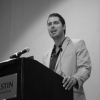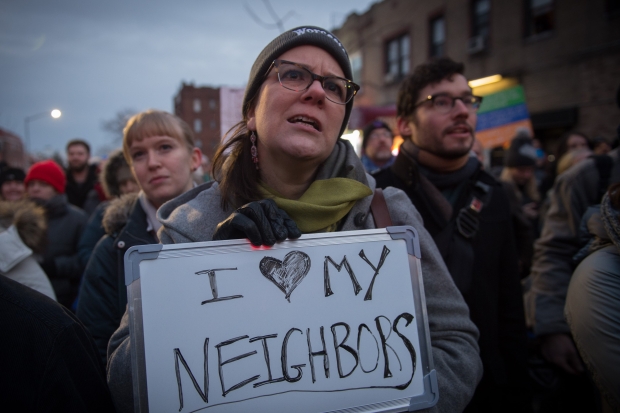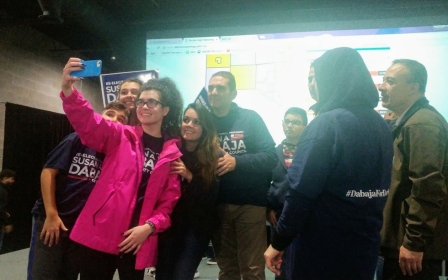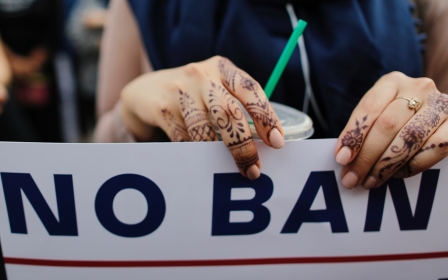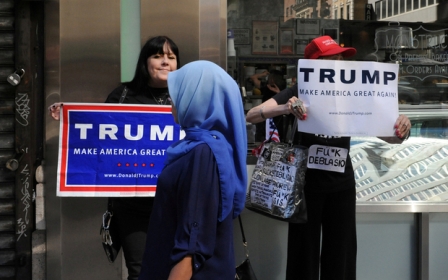Trump has led the way for schoolyard bullying of American Muslims
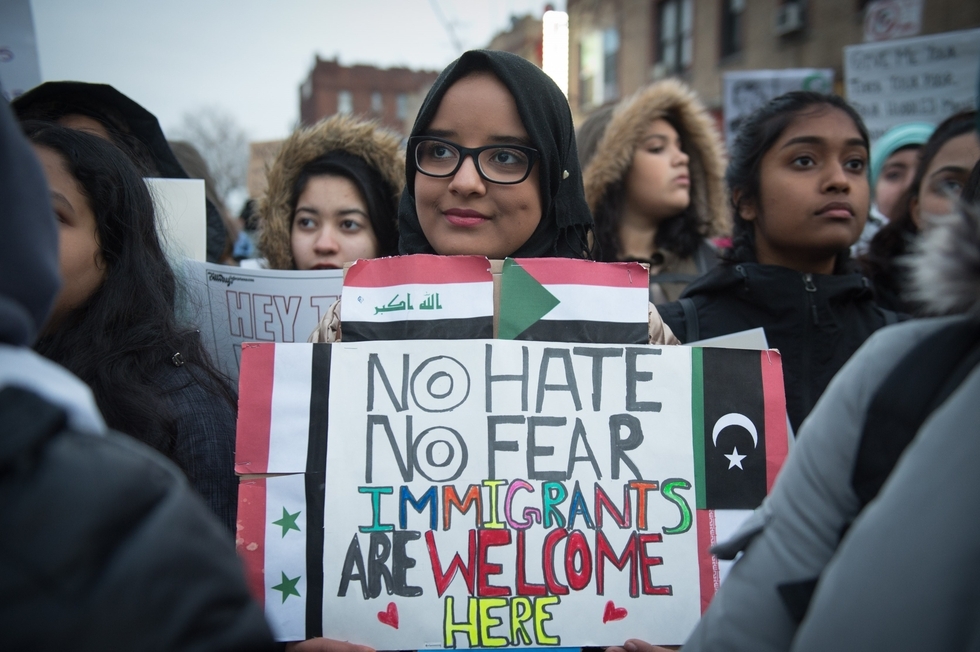
During the past year, 42 percent Muslim American parents reported their kids being bullied in school, according to a recent survey conducted by the Institute for Social Policy and Understanding.
By means of comparison, Muslim American children are twice as likely to be bullied as Jewish or Protestant kids, and seven times more likely than children of Catholic parents, while kids from non-religious affiliated households reported almost no bullying whatsoever.
A wave of bullying
Teachers across the country have reported a wave of bullying in the schoolyard since US President Donald Trump's presidential campaign began more than two years ago. "We've had more racial incidents in the last 12 months than there has been here in years," said Michael Zilles, president of a teachers association in Massachusetts.
While schoolyard bullying is as old as schooling itself, more than 50 percent of teachers reported an increase in "uncivil political discourse", while another one-third observed an increase in anti-Muslim sentiment, according to a study conducted by the Southern Poverty Law Center titled "The Trump Effect: the Impact of the 2016 Presidential Election on Our Nation’s Schools".
It takes little imagination to realise that when adults reward anti-Muslim animus at the ballot box, school-age kids will likely replicate that behaviour by punishing Muslims in the playground.
Last month, I posted a Tweet asking Muslim Americans whether their kids had been subjected to bullying at school and/or do they believe it had gotten worse in recent years. I received dozens of replies, direct messages and emails. Each was profoundly distressing, with some describing shocking details of harassment and victimisation.
A Muslim man in Folsom, California, who asked to remain anonymous, told me: "A young Muslim kid of 10 was threatened by two older kids at the local swimming pool…the two older kids threatened to kill him and tried to drown him before he managed to escape."
When I asked him to elaborate more on the story, he said this attack took place over the summer, and that "it was clearly an attack based on his religion as the boys made certain anti-Muslim comments".
Other respondents told me how their kids were routinely accused of "belonging to ISIS" or being "terrorists", while one parent said her 14-year-old daughter found a note on her bag that read: "Muslims are banned in America. Goodbye", clearly referencing Trump's proposed Muslin immigration ban.
Shaik Fahad Akhtar, a 24-year-old Pakistani American, who was born and raised in Southern California, told me he felt like an "outcast" as a child because of his "appearance", and thus "felt out of place and oppressed", which he blamed on the anti-Muslim atmosphere that has percolated in the United States since the 9/11 attacks.
Victims of prejudice
More troubling is the fact that Muslim children are not only the victims of prejudice and discrimination at the hands of their fellow students, but also by their teachers, too. Last month, a teacher in Tennessee was suspended for yanking the hijab off a Muslim student, while another was accused of choking and harassing a five-year-old Muslim student in Charlotte, South Carolina.
“Experiencing stressful events earlier on in the life course - school age - has significant and lasting effects on health and well-being over a child's life span," says Sirry Alang, an assistant professor in the department of sociology at Lehigh University.
"Things like psychological distress, emotional and behavioral problems, poor academic performances. It also increases risks of physiological and chronic conditions that are linked to stress, like gastrointestinal issues, cardiovascular diseases, that not only affect the child but tax other systems such as healthcare, education, and social services."
When I interviewed Rabia Chaudry, a Muslim-American attorney and author, whose legal defence of Adnan Syed, a Muslim teenager charged with the murder of his girlfriend, was made famous by the podcast Serial, she told me about the fears over the negative impact the "shadow of 9/11" has had on the identities of Muslim-American children.
"You have young Muslims saying, 'You know what, I don't want anything to do with this religion [Islam] anymore. But then you have other people [Muslim kids] acting in a different way and saying, 'I'm a Muslim loud and proud, and f*** this country."
To this end, Chaudry says it’s no coincidence "jihadist" websites are published in the English language, adding that extremist groups are targeting marginalised and bullied Muslim American kids in the same way sexual predators groom and target vulnerable children online.
"[It’s] that feeling we all had as teenagers: 'I don’t fit. I don't belong here. I want something bigger. I want to do something better with my life,'" explained forensic psychologist and terrorism expert Dr John Horgan in a recent interview. "Those are the types of things recruiters latch onto and exploit, and they're very good at it. It's a fantasy, ultimately, that recruiters will use to keep the conversation going on."
Thus serving as a further reminder that the roots of violent extremism do not trace back to a static religious ideology, but more so to an array of psychosocial factors that speak to fundamental flaws in our own societies.
For instance, a new report produced by the think tank Runnymede titled Islamophobia: A Challenge for Us All outlines how structural racism in British society is excluding Muslims from mainstream political and social affairs, resulting in negative economic, educational, and political consequences for Britain’s three million Muslims.
Extremist groups prey on the marginalised and those who feel discriminated against. In fact, a cornerstone of Islamic State (IS) recruitment strategy is to make life as difficult as possible for Muslims living in the West.
Therefore, if we don’t address bullying in our schools, and if we stand by idly as 42 percent of American Muslim children are subjected to physical and verbal violence in the classroom, then we are guilty of doing nothing to inoculate our adults of the future against the lure of violent extremist groups.
- CJ Werleman is the author of Crucifying America (2013), Koran Curious (2011), and he is the host of Foreign Object. Follow him on twitter: @cjwerleman
The views expressed in this article belong to the author and do not necessarily reflect the editorial policy of Middle East Eye.
Photo: A sign is held as the Astoria community stands together with Muslim-Americans and Muslim immigrants during a rally, February 3, 2017 in New York (AFP)
This article is available in French on Middle East Eye French edition.
New MEE newsletter: Jerusalem Dispatch
Sign up to get the latest insights and analysis on Israel-Palestine, alongside Turkey Unpacked and other MEE newsletters
Middle East Eye delivers independent and unrivalled coverage and analysis of the Middle East, North Africa and beyond. To learn more about republishing this content and the associated fees, please fill out this form. More about MEE can be found here.


